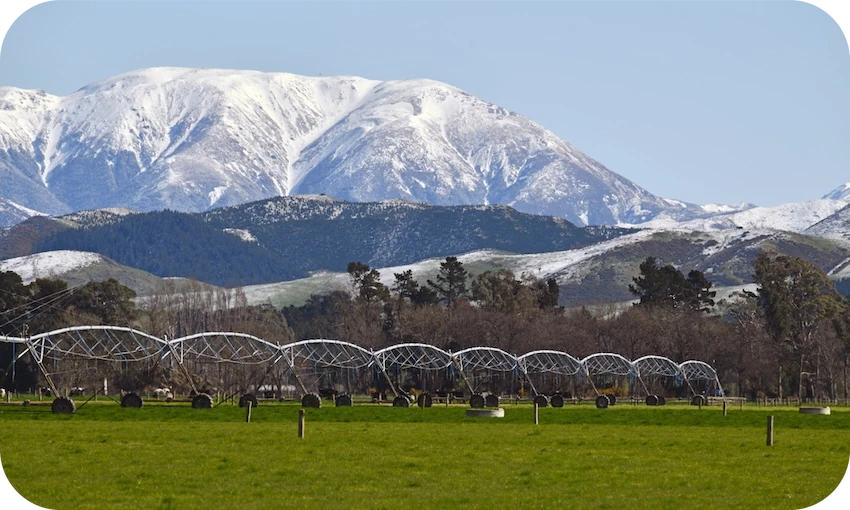A reform of local government was scrapped. What happens now?
The government has opted not to progress any of the recommendations made by a 2023 review panel.
Mōrena, and welcome to The Bulletin for Wednesday, July 10.
In today’s edition: More details about the Darleen Tana investigation have emerged in the media, New Zealand’s deepening ties with Nato as PM Luxon arrives in Washington, and the next chapter in The Pilgrim saga. But first, what does the future of local government look like?
‘Timely and necessary’
Back in 2021, a plucky new MP by the name of Christopher Luxon said a review of our local government system was “timely and necessary”. Then but a humble spokesperson for local government, Luxon said National (in opposition) welcomed a new review dubbed the “Future of Local Government”, saying it was a good chance to consider “what local government does, how it does it, and how it is financed”. Just three years later, that work quietly came to a grinding halt under Luxon’s leadership. As RNZ reported, the government last week opted not to progress any of the 17 recommendations made by a review panel in 2023. Local government minister Simeon Brown claimed the review had been launched in response to the Three Waters reforms and “lost its way” by focusing on issues like lowering the voting age and changing the voting system. "These issues are a distraction from the key issues facing local government,” Brown said. So today, what are the issues facing local government, and do our political leaders have a plan?
What was on the table
The report’s findings made significantly more of a splash than the decision to scrap them last week. Andrea Vance at Stuff had the scoop first, reporting that the future of local government could see fewer councils, elections on a four yearly cycle and the somewhat controversial lowering of the voting age to 16. Newsroom’s Jonathan Milne homed in on some of the more technical aspects, noting proposals for central government to pay council rates on schools and hospitals, and for councils to have access to a new climate adaptation fund. In short, summarised Anna Rawhiti-Connell in The Bulletin at the time, the review signalled “an almost complete retooling of local democracy”. Critically, noted Vance, the report was not yet government policy. Labour opted to bump any decisions on the proposals until after the election (which it of course lost) as it focused on “bread and butter” issues. The rest is history.
How Tauranga is key
Against the backdrop of these recommendations were two notable council crises that illustrated the need for reform. One, the discord within the Gore District Council, appears to have resolved itself somewhat in the months since. But the other, as we discussed in a recent edition of The Bulletin, is about to take a monumental leap. Tauranga is days out from its first election in five years and will be the only local council elected this year, barring an unexpected local government disaster elsewhere.
Newsroom’s Jonathan Milne argues that the protracted troubles in Tauranga are illustrative of the broader challenges facing local government, and prove that central government should be getting involved. Rates rises in the city have risen by an average of 15.9% this year, while the commissioners in charge imposed a road levy of $70 per household to help finance critical infrastructure. It was these “scattergun” attacks on ratepayers that prompted the Future of Local Government report in the first place, Milne says. The issue of rate rises is certainly not limited to Tauranga, as Nelson’s mayor Nick Smith wrote recently for the Sunday Star-Times. His column concluded with this: “Councils are right to challenge the government about some of the costs it is imposing but we also need to be prepared to reform ourselves and become more efficient.”
Where to from here
Smith, a former senior minister in the John Key government, could have a key role to play in the future of local government. While the government has decided against implementing the report’s proposals, Smith has been tasked with leading a new reform group established by Local Government NZ. As part of this, reported RNZ, he will look at some of the issues the previous review panel had recommended.
Interestingly, as The Spinoff’s Shanti Mathias reported earlier in the year, the government has been ever so slightly more open at looking at changes to our wider electoral system following a similar review released earlier in the year. But what about local councils? When announcing the decision to dump the review, Simeon Brown gave a small indication of the government’s future plans, though nothing is on the cards yet. He acknowledged “the need to reform funding and financing, and planning for long-term economic growth, housing and infrastructure”, and referenced the coalition’s revamped water reforms and regional deals. But he took swipes at broader proposals, such as Māori wards and the voting age. It could, as The Spinoff’s Joel MacManus wrote recently, have something to do with the government’s (at least public) perspective that local communities are best served to make decisions on their futures. Or perhaps, as argued by the former mayor of Kāpiti in The Post, it’s because of a “parliamentary ivory tower that does not see fit to commit taxpayer dollars to councils to give them that capacity and capability to be effective”.
Like what you read? Become a member!
Every contribution exclusively funds our journalism and helps keep it freely available to all. Join up today!
Already a member? Ka nui te mihi, your support means the world to us.
Parts of Darleen Tana investigation leaked
If you were listening to Newstalk ZB last night, you would have caught the electrifying moment host Heather du Plessis-Allan read parts of the previously secret Darleen Tana investigation out live on air. For a refresher on what we know about the ousted Green MP, here’s yesterday’s Bulletin. The report revealed the reason it took more than 100 days for the investigation to be completed, with the investigator claiming Tana’s husband (alleged to be involved in the claims of migrant exploitation) “tended to obfuscate rather than elucidate” while Tana’s evidence “shifted” during conversations. RNZ’s Anneke Smith has read the report’s executive summary, which was also leaked, reporting that it claims Tana “likely” knew about the allegations against her husband’s business and did not disclose them to the Greens. Tana has resigned from the Greens but, at least for now, remains an MP.
Ex-Film Commission chief left after nine months, was paid half a million in leave and severance
The former boss of the New Zealand Film Commission was paid over half a million dollars in leave and severance payments, reports the Herald’s Kate MacNamara, despite leaving after just nine months in the role in 2022. It’s reported David Strong went on paid leave as chief executive from March until August 2022, when he left the organisation. The circumstances of Strong’s departure links to a proposed television series called The Pilgrim, extensively reported on by The Spinoff’s Duncan Greive at the time. The Pilgrim was a lifelong dream of Strong, reported Greive, but it became complicated after the project’s script was pulled out of “development hell at the same time as its creator vaulted from obscurity to become the chief executive of the New Zealand Film Commission”.
Business is Boring: Changing boating for the better
Vessev CEO Erik Laakmann joins Simon to tell the story of how he went from working at Apple on the Apple Watch project, to sailing the world with a crew of near-strangers, before ending up in Aotearoa on a mission to revolutionise the boating industry.
Click and Collect
The capital gains tax question will continue to haunt Labour in opposition. Now, some within the party are reported to be “eyeing the merits of Ireland’s Capital Acquisitions Tax… a souped-up version of an inheritance tax”.
Tennis: Lulu Sun's dream Wimbledon run ends with quarterfinal loss. I enjoyed this interview on RNZ’s First Up earlier with the president of Sun’s home club at Te Anau.
SailGP event confirmed for Auckland in January.
NZ First made the unfounded claim on Twitter that the Aratere ferry ran aground after being put on autopilot while a crew member went to get a coffee. If only NZ First was in government and could find out (Interislander has quickly rejected the allegation).
We’ll talk about Christopher Luxon’s Washington trip in more depth tomorrow. In the meantime, Newsroom’s Sam Sachdeva examines the growing ties between New Zealand and Nato (paywalled).
On the front page of The Post, a senior doctor says he raised the alarm about dangerous working conditions at a Lower Hutt general practice before a mass exodus of doctors and nurses, and the owners ignored him.
The Spinoff’s Alex Casey explains how to protect your family against the “pornographic” threat of g-strings.
From The Conversation: A once-in-a-lifetime explosion is about to create a “new” star in the sky.
Shanti Mathias explores how snow feeds us all. Lyric Waiwiri-Smith remembers when Suzanne Paul went bankrupt trying to build a “cursed” Māori village. Oliver Clifton reviews Power to Win by Lyndy McIntyre, about the Living Wage movement. Former sex worker Cathasaigh Ó Fiannachta discusses what Madam gets right (and wrong) about the reality of sex work. Ben Fagan considers three New Zealand choirs that made him cry. For The Cost of Being, a 23-year-old with a 'severe lack of willpower' breaks down his costs and his little treats.
Capital picks, with Joel MacManus
The Spinoff’s Wellington editor shares his reading list for the week.
My weekly edition of Windbag, which explores the promising new initiatives trying to rebrand the Courtenay Precinct as a more welcoming, all-day entertainment area.
Dave Armstrong explores why the controversial new Wellington convention centre Tākina is missing its financial targets
Tom Hunt reveals an exclusive deal where Wellington City Council provided Sir Peter Jackson's film studio with 50 carparks for just $1 a year.
That’s it for The Bulletin today, thanks for reading. I’ll be back tomorrow morning.
Let me know in the comments, or get in touch with me at thebulletin@thespinoff.co.nz, if you have any feedback on today’s issue or anything in the news.
If you liked what you read today, share The Bulletin with friends, family and colleagues.
















"The government has opted not to progress" says it all.